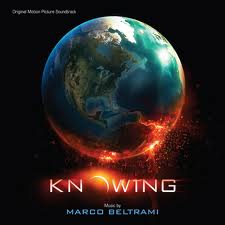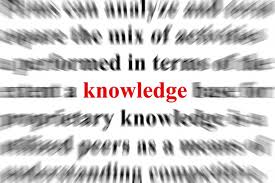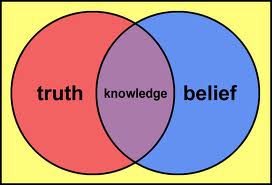
IT IS HOPED THAT THIS PRINCIPLE will become part of everyone’s ‘intellectual machinery’ as a critical thinker, and be conscious at all time in making decisions. After reading this article, students will be able to:
1. Understand the different types of knowledge claims;
2. Internalize the principle of healthy skepticism which is to become everyone’s epistemic responsibility;
3. Distinguish the secular from divine knowledge; and,
4. Give prime importance to the true knowledge being taught by the Holy Scriptures.
Reading Activity
§1. Epistemology is a branch of knowledge which deals with the study of scope, limits, and validity of knowledge. This terminology originated from two Greek words episteme which means to know and logos which means study.
Practically speaking, almost all of epistemological claims in whatever line of inquiry – whether be it social or behavioral sciences or pure or applied mathematics, three fundamental questions must be satisfied: the first is What can I know? The second question is How can I know? And the third question is Why do I have to know?

The first question deals with the scope and possible limitation of what man can know as far as knowledge of the external world is concerned; the second question deals with the
methodology or manner of acquiring knowledge.
The third question gives appropriate justification for accepting such body of knowledge or any particular knowledge claims. It is important to understand this in order to utilize and apply its function in our lives. For true Christians all knowledge fall down into two domains: secular knowledge and divine knowledge. This will be elaborated in §3.
§2. This section now discusses one of the most important part of this book namely, the epistemic responsibility of a critical thinker. Whatever type of knowledge students entertain or endeavor to pursue, this principle is of prime importance.
As students each must commit themselves not to accept the truth of any statement or belief without sufficient evidence. This means that if the evidence in support of a certain knowledge claim or a particular type of belief, be it customary or traditional is not sufficient or inadequate, the only option is either to reject or suspend judgment.

This type of healthy skepticism will be beneficial for everyone. For if a person will take this advice seriously, he will not fall into error of subscribing to a belief or knowledge claim without sufficient foundation.
The practical advantage of keeping these distinctions was articulated by my former teacher Andresito Acuña, thus:
You will guard yourself against accepting as true rumors, gossips, predictions of fortune tellers and superstitions because almost all of them are unprovable claims. You will not readily accept as true statements or beliefs uttered by persons in authority like your Philo 1 teacher or your village elders.
In the long run, you will accumulate beliefs and information founded on evidence. … in the end, you will be transformed into a different person – a critical and independent thinker. (Andresito Acuña, Philosophical Analysis: Advanced Techniques for Critical Thinking. [UP Diliman, Quezon City: 2004] p. 127.)
I will add to the list astrologers, fortune tellers, or feng shui experts (they say). What they say are just speculations from baseless inferences.
§3. History, anthropology, the sciences, and man’s knowledge of the culture and the arts fall within secular knowledge. This is the knowledge of the external world which could be known by man through the aid of his five senses.
Almost all of the bodies of knowledge man had endeavored to develop throughout the history of civilization fall within this category: from mathematics to physics, all bodies of scientific endeavors to economics and politics.
How did man able to acquire these bodies of knowledge? Man recorded his observations, generally and from there man improved and developed his own system of rational organization and systematization of knowledge types. That is what we have now, the different social sciences and intellectual disciplines today.
Depending on type or discipline, each uses its own methodology in pursuit of knowledge with the aim of improving man’s standard of living. Practically speaking man has reached the pinnacle of modernization and is still in search of ‘undiscovered land’ so to speak.
Man still search, and still is untiring, to attain ‘absolute’ knowledge (even in science) to look for the ‘elixir of life.’ This cannot be discovered in the realm of the secular knowledge. Ironically, this is the purpose and aims of divine knowledge, with the purpose of knowing the way to true or eternal life.
 Divine Knowledge
Divine Knowledge is the true knowledge coming from God which is based from the Holy Scriptures. This is everything man needs to know to become a complete man. (
II Tim. 3:15-17 Revised Standard Version).
Unlike many Christian-professing religions, many intellectuals and evangelical theologians did not pay importance to the process of how the true knowledge coming from God reaches man. The result is they fall into error, misinterpretation and misrepresentation of symbolism depicted in many prophecies in the Bible. They even came up with differing interpretations of many scriptural passages or texts. (The result is very evident.
There are so many Christian-professing religions who subscribe their belief in the Bible but differ in their interpretation of Biblical pronouncements.) They failed to realize that divine knowledge may come to man only by completing these five processes: revelation, inspiration, canonization, transmission and illumination. Let us explain this one by one.
Revelation is the act or process of giving His law or command to man. God gave to man his laws in different ways; for example, God gave Moses the Ten Commandments.
Inspiration is the act of committing to writing all the laws and decrees given by God. For example, God commanded Jeremiah the prophet to write in a book the words of God.
Canonization is the process of gathering God’s written laws into a single compendium. The Hebrew Canon of the Holy Scriptures is the evidence of this.
Transmission is the process of translating God’s word into different languages or dialects for purposes of evangelization and religious education. For example, there are hundreds of translations of the Bible available today.
And the last is illumination, which pertains to the process of spreading the words of God through His appointed messengers or preachers.
This last process is of prime importance because although there are so many divinity and theological schools today, what they in fact do is to subjectively interpret biblical texts and scriptural exegeses from different translations and scholars in the past.
They have not illuminated the true words of God, and the evidence is they did not reach universal agreement to the various interpretations in many of the doctrinal issues in the Scriptures. They have to prove first their divine right to interpret the words of God by citing Biblical prophecies attesting to their being God’s messengers.
§4. Why do I have to know? This is a very commonsensical question to require an answer. Say, why do I have to brush my teeth everyday? Why do you have to clean your mess? I must – constantly-habitually - because if not, my teeth will decay, my friends will avoid me because of my bad breath- the same thing will happen to you. You have to clean your mess for if not, you will create troubles everywhere you go.
In short, the reason for knowing is the
end or
purpose of knowledge – which informs us of the benefits we may obtain from any knowledge we wish to pursue. The famous WIIFM – what’s in it for me – is answered here but not for shallow reasons but for giving the most important reason – its importance in our everyday life and orderly existence.

Realizing the importance of a knowledge pursuit enables everyone to prioritize what needs attention first and foremost.
Secular knowledge of the arts, sciences and technology is very important to adapt to the times, to have a pleasurable life. But this is not enough. What humanity really needs is the knowledge – the true knowledge that enables man to know what he really needs to do to improve his living here and not only that, but to know the way to the true life.
And for the true Christians this is knowledge of the Kingdom of God – which is the key to living in righteousness true and eternal life. (Mt. 6:31,33; Eph. 3:10 New King James Version.) Like what I always relay to my students, a passage I read from a poster, says “the greatest mission in life is to know the life that never ends.”
Doxa and episteme
Indeed, one of the subject matters in Epistemology is the distinction between doxa and episteme. Doxa may refer to common belief and popular opinion, whereas episteme is interpreted as more of a justified, true belief.
Doxa basically means belief; the belief held by a person (or a certain group of people) about a certain matter. Having dokein (seeming) as its root word, doxa expresses how something appears to someone.
An event E, for instance, appears to person P. When based on that appearance, P issues judgment (doxazein) that E is so and so, he (p) creates a doxa. Hence, the term doxa is also understood as opinion.
On the other hand, the Greek word episteme is usually translated as true knowledge. Aristotle considers it as one of the five virtues of thought.
Episteme is also translated as ‘scientific knowledge,’ though not in the way the term ‘scientific’ is understood today, but as denoting ‘certainty’. Aristotle holds that certain knowledge or certainty is established by demonstration. True knowledge for him, therefore, is demonstrable or can be proved and verified.
Doxa, as a belief by a person about something, can be said to be a partial point of view. In contrast, episteme, being a justified belief, may represent a holistic point of view. Indeed, obtaining episteme or true knowledge demands a holistic view of things, and this is one of the goals of Philosophy. (Also read: Distinguish a Holistic Perspective from a Partial Point of View (Holism vs Partial Perspective)
*The contributor of this lecture is a Philosophy professor in a university in Quezon City, Philippines. (* You, too, can have
your articles published here.)
NOTE: Click first the 'LIKE' and 'SEND' buttons before writing anything in the comment section below [add a comment]. Thank you!
 IT IS HOPED THAT THIS PRINCIPLE will become part of everyone’s ‘intellectual machinery’ as a critical thinker, and be conscious at all time in making decisions. After reading this article, students will be able to:
IT IS HOPED THAT THIS PRINCIPLE will become part of everyone’s ‘intellectual machinery’ as a critical thinker, and be conscious at all time in making decisions. After reading this article, students will be able to: The first question deals with the scope and possible limitation of what man can know as far as knowledge of the external world is concerned; the second question deals with the methodology or manner of acquiring knowledge.
The first question deals with the scope and possible limitation of what man can know as far as knowledge of the external world is concerned; the second question deals with the methodology or manner of acquiring knowledge. This type of healthy skepticism will be beneficial for everyone. For if a person will take this advice seriously, he will not fall into error of subscribing to a belief or knowledge claim without sufficient foundation.
This type of healthy skepticism will be beneficial for everyone. For if a person will take this advice seriously, he will not fall into error of subscribing to a belief or knowledge claim without sufficient foundation. Divine Knowledge is the true knowledge coming from God which is based from the Holy Scriptures. This is everything man needs to know to become a complete man. (II Tim. 3:15-17 Revised Standard Version).
Divine Knowledge is the true knowledge coming from God which is based from the Holy Scriptures. This is everything man needs to know to become a complete man. (II Tim. 3:15-17 Revised Standard Version).




